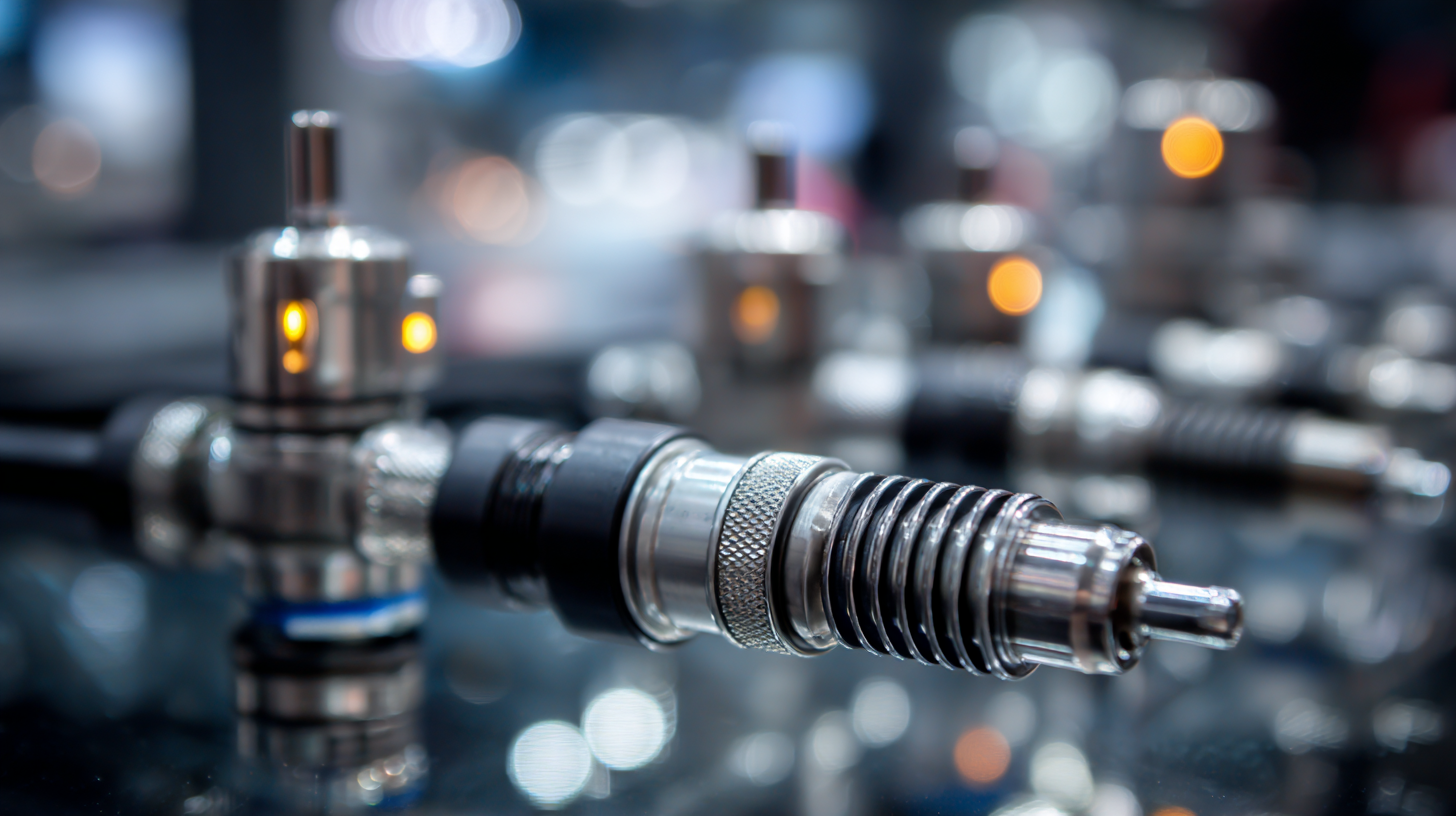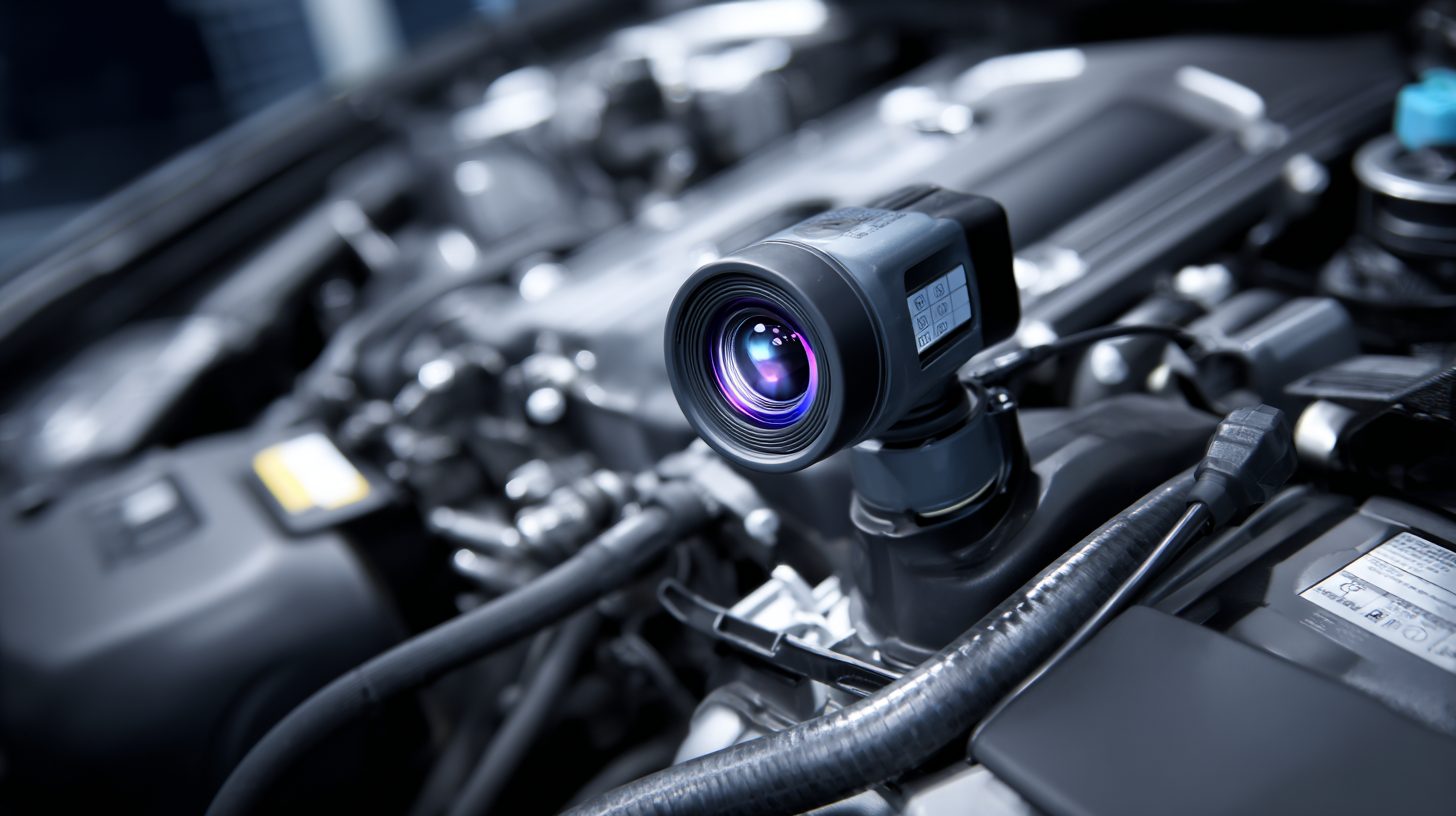- English
- русский
- العربية
- tiếng Việt
- Türkçe
- Deutsch
- 日本語
- 한국어
- ภาษาไทย
- Indonesia
- שפה עברית
- Português
- Español
- Français
- Italiano
- Nederlands
- Polski
- Svenska
- magyar
- Malay
- বাংলা ভাষার
- Dansk
- Suomi
- हिन्दी
- Pilipino
- Gaeilge
- تمل
- český
- ελληνικά
- український
- Javanese
- فارسی
- தமிழ்
- తెలుగు
- नेपाली
- Burmese
- български
- ລາວ
- Latine
- Қазақша
- Euskal
- Azərbaycan
- Slovenský jazyk
- Македонски
- Lietuvos
- Eesti Keel
- Română
- Slovenski
- मराठी
- Srpski језик

Finding Top Suppliers of Best Automotive Sensors Your Ultimate Checklist
In the rapidly evolving automotive industry, the demand for high-quality automotive sensors is paramount, as they play a crucial role in enhancing vehicle performance, safety, and efficiency. According to a recent report from MarketsandMarkets, the automotive sensor market is projected to grow from USD 23.5 billion in 2020 to USD 39.6 billion by 2025, representing a compound annual growth rate (CAGR) of 11.0%. This surge in demand underscores the importance of sourcing top-tier suppliers who can provide innovative and reliable sensors that meet stringent industry standards. As vehicles increasingly integrate advanced technologies such as autonomous driving and connectivity features, selecting the right automotive sensors is essential for manufacturers aiming to stay competitive. In this blog, we will present an ultimate checklist to help you identify and partner with the best suppliers in the automotive sensors market.

Identifying Key Features to Look for in Automotive Sensors
When searching for the best automotive sensors, it's essential to identify key features that ensure reliability and performance. One of the most critical aspects to consider is the sensor's accuracy. High-quality sensors should provide precise readings under various conditions, which is vital for systems like engine management and safety mechanisms. Therefore, look for sensors that are backed by industry standards and have undergone rigorous testing.
Another important feature is the environmental resilience of the sensor. Automotive sensors operate in diverse and often harsh conditions, including extreme temperatures, moisture, and vibrations. Selecting sensors with robust materials and protective casings can significantly enhance their lifespan and reliability. Additionally, consider the response time of the sensor; quicker response times can lead to more efficient vehicle performance and improved safety features.
Finally, compatibility with current automotive systems is paramount. Ensure that the sensors you choose can easily integrate with existing hardware and software setups. This compatibility not only reduces installation complexities but also ensures that you're not investing in outdated technology. By focusing on these key features, you can make informed decisions when finding top suppliers for automotive sensors.

Top Strategies for Evaluating Potential Sensor Suppliers Effectively
When evaluating potential suppliers for automotive sensors, it's crucial to adopt effective strategies that ensure you partner with the best in the industry. A recent report by MarketsandMarkets highlights that the automotive sensor market is expected to reach $34.8 billion by 2026, growing at a CAGR of 7.7% from 2021. This growth underscores the importance of selecting reliable suppliers who can meet current and future demands in technology and innovation.
One effective strategy is to assess a supplier’s technical capabilities and certifications. Companies should ensure that their potential suppliers have necessary ISO certifications, as these reflect a commitment to quality and continuous improvement. Furthermore, reviewing product portfolios and understanding technological advancements can help in identifying suppliers that not only meet current specifications but are also aligned with future trends, such as increased electrification and automation in vehicles. According to Allied Market Research, the market for electric vehicle sensors alone is projected to grow significantly, making it imperative to choose suppliers that are not only experienced but also forward-thinking in their technological offerings.
Finding Top Suppliers of Best Automotive Sensors: Your Ultimate Checklist
| Criteria | Details |
|---|---|
| Industry Experience | Minimum 10 years in automotive sensor manufacturing |
| Certifications | ISO 9001, TS 16949 certified |
| Product Range | Wide variety including temperature, pressure, and position sensors |
| Quality Assurance | Rigorous testing and quality control processes |
| Customer Support | Dedicated support with quick response times |
| Research & Development | Strong R&D capabilities with innovative product development |
| Sustainability Practices | Focus on eco-friendly materials and sustainable processes |
| Pricing Competitiveness | Competitive pricing structures with flexible payment terms |
| Delivery Timelines | Reliable on-time delivery performance |
Understanding Industry Standards and Certifications for Reliable Sensors
When sourcing the best automotive sensors, understanding industry standards and certifications is crucial for ensuring reliability and performance. Certifications such as ISO 9001 and IATF 16949 are essential indicators of a manufacturer's commitment to quality management systems. These certifications not only signify that the supplier adheres to rigorous quality control measures but also that they continuously improve their processes to meet market demands. Automotive sensors play a vital role in vehicle safety and efficiency, making it imperative to partner with suppliers who maintain these standards.
In addition to quality certifications, it's important to consider compliance with specific industry regulations such as those set forth by the Society of Automotive Engineers (SAE) and the Automotive Industry Action Group (AIAG). These organizations provide guidelines that address safety, environmental considerations, and performance criteria for automotive components. By ensuring that potential suppliers meet these requirements, automotive manufacturers can mitigate risks associated with sensor failures and enhance the overall performance of their vehicles. Ultimately, collaborating with certified suppliers equips manufacturers with the confidence that they are investing in high-quality, reliable automotive sensors.
Top Automotive Sensor Types and Their Market Share
Essential Questions to Ask When Approaching Automotive Sensor Suppliers
When sourcing automotive sensors, it's crucial to ask the right questions to ensure you're partnering with a reliable supplier. Start by inquiring about their experience and expertise in the specific type of automotive sensors you require. A supplier’s track record can significantly impact the quality and performance of the sensors, particularly in critical applications such as Battery Management Systems (BMS). Recent reports suggest that precision in State of Charge (SOC) and State of Health (SOH) metrics has seen advancements, with accuracy improvements being a focal point in the industry.
Moreover, ask potential suppliers about their adherence to industry standards and certifications. According to recent data, manufacturers who comply with international quality standards are 30% more likely to deliver high-performing products. In the context of the burgeoning electric vehicle market, which has witnessed a growth rate of over 30% annually, ensuring that your suppliers are equipped with the latest technology and compliance can make a significant difference in product reliability. Engaging with suppliers who actively participate in industry forums can also provide insights into innovations and best practices that are shaping the future of automotive sensors.
Tips for Negotiating Prices and Terms with Sensor Manufacturers
Negotiating prices and terms with sensor manufacturers is a critical step in sourcing top-quality automotive sensors. Start by conducting thorough research on market prices and manufacturer capabilities to establish a solid foundation for negotiations. Understanding the average costs and competitive offerings allows you to enter discussions with confidence. When you approach a potential supplier, articulate your requirements clearly and emphasize the long-term relationship you envision. This not only positions you as a serious buyer but can also prompt the manufacturer to be more flexible with pricing and terms.
Another essential strategy is to explore multiple suppliers and leverage competitive quotes against one another. This approach can lead to better negotiation outcomes, ensuring you get the best deal possible. Don’t shy away from discussing payment terms, delivery timelines, and warranty options. These elements are just as crucial as the price and can greatly affect your overall costs and supplier satisfaction. Aim for a win-win scenario where both parties feel valued. This cooperative mindset can foster a stronger partnership, ultimately leading to better service and product quality in the long run.

